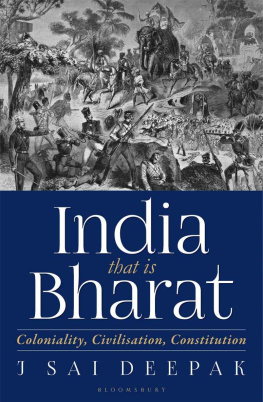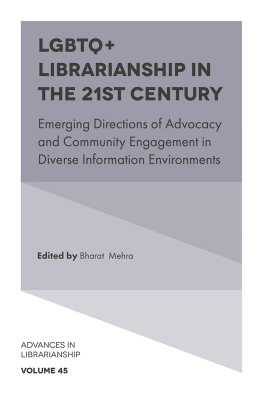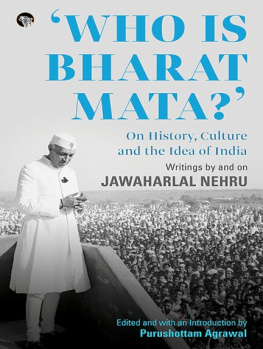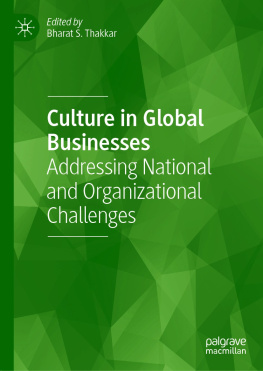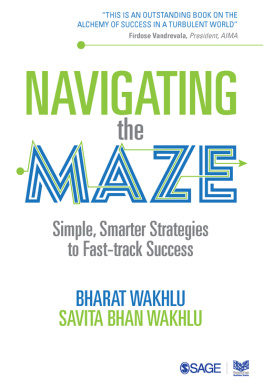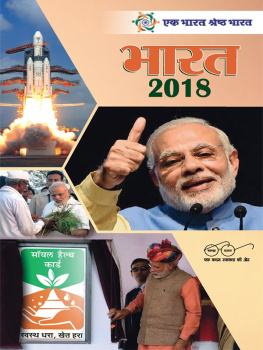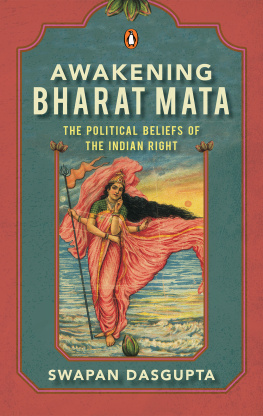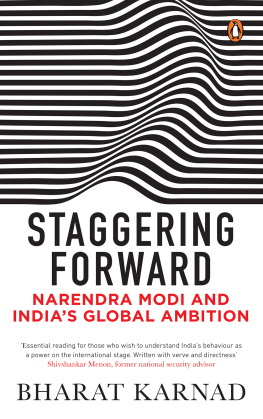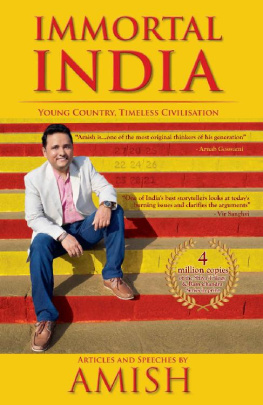India
that is
Bharat

To preserve the binary orthodoxy and fundamental beliefs in one modernity, one rationality and their universality, Western civilisation constituted itself claiming ownership of Greek thought and the local Western version of Christianity, by the destitution of the differences, and the accusation that differences and dissenting positions to Western orthodoxy were and are irrational, anti-modern and grounded in local fundamentalism. The celebrations of modernity and postmodernity are both conservative in intent to manage the future. Decoloniality doesnt propose a return to a pristine past, but the reconstitutions and restitutions in the present (and towards the future) of destitutions in the name of modernity, rationality and emancipated thinking. Sai Deepak builds a strong decolonial argument disengaging from modern Western orthodoxy of the either/or, and proposes instead the decolonial logic of neither/nor. He does it by means of a detailed and careful reconstitution of knowledges, ways of knowing and patterns of sensing that were destituted and continue to be so in the name of progress, democracy and economic development, all under the mantra that more is better. Such reconstitutions require dwelling and thinking in the borders between grounded local languages, memories and praxis of living that cannot be supplanted by languages, memories and praxis of living grounded in foreign local histories. Such is the argument that Sai Deepak builds, and invites us to think and work decolonially towards pluriversal futures.
Walter D. Mignolo
William Hane Wannamaker Distinguished
Professor of Romance Studies,
Duke University, USA
J. Sai Deepak has begun something here that needs serious attention. It also suggests that significant support is required to develop its proposals further in directions not yet explored.
I hope the book will be read and debated widely, especially in and for the sake of the India that is Bharat.
Dr. Prakash A. Shah
Reader in Culture and Law, Queen Mary University of London
World over, academic discourse is rife with decolonial arguments that have been explicit in their challenge to the insular homogeneity of historical narratives, nomenclatures and historiographical frameworks emanating from Europe. These movements of reclamation and reparatory justice rely on what is popularly called epistemic disobedience that seeks to reimagine and reconstruct our world, our notions of modernity and rationality from the viewpoint and lived experiences of hitherto enslaved colonies. Much of this scholarship has so far emanated from Latin American and African countries. Asia, in particular India, which has been the longest sufferer of colonialism, is conspicuous by the lack of her adequate representation in this discourse. The tide, however, seems to be changing for the better now. Through this magisterial trilogy, advocate and scholar J. Sai Deepak successfully fills a huge vacuum in the corpus of decolonial scholarship from a uniquely empathetic Indian perspective. In a masterful manner, Sai Deepak traces the global history of colonialism, Indias unfortunate tryst with it and, importantly, enquires its impact on the emergence of a colonial consciousness. Combining the skills of an adept lawyer and a tenacious researcher, Sai Deepak references a wide and impressive array of archival literature to make a compelling argument that in the case of India, decoloniality is not merely an option but a civilisational imperative, which we simply cannot afford to delay any further. Gleaning from the works of several Indic as well as Western decolonial scholars and policymakers, and legislative debates, he makes a richly-layered case in this eminently readable treatise on how, despite being technically free from colonialism with the achievement of freedom, our minds are far from being decolonised. It is this coloniality that regularly manifests itself in judicial pronouncements on Indic faith-based matters; the States continued stranglehold and perverse intervention in the majoritys places of worship; or the casual, axiomatic pronouncements of the elite, who debunk the very idea of our existence as a nation ever, pathetically attributing this as well as other economic milestones (railways, schools, etc.) to the Raj. Not the one to fear calling a spade by its name in the interests of political correctness, Sai Deepak convincingly busts each of these myths and symptoms through the heft of his intellect and the might of his fact-based arguments. It would become amply clear to any discerning reader too, just as Sai Deepak rightly concludes by taking recourse to pop culture, that European coloniality is like the matrixone just needs to become aware of it, after which it is impossible to unsee it, especially in matters of religion, polity, education, economics and the law. A must-read tribute to the Indic civilisation for anyone serious about understanding the pernicious trajectory of invasive colonialism and the lingering colonial consciousness in the independent Indian (or should we term this as he does, Bharatiya) mind, and how to consciously work towards reversing it.
Dr. Vikram Sampath
Historian, Author and Adjunct Senior Research Fellow at Monash University
Advocate J. Sai Deepak has provided India with a milestone: a step from superficial to integral decolonisation. The coloniser has transferred the exercise of power in 19471950, but left in place a legal framework that continues to guide the lives of Indians in considerable detaila steel frame of perpetual and profound European domination. Few combine the vision of a civilisational liberation, easy to invoke in malleable cultural respects, with the exacting juridical knowledge needed for a precise and workable paradigm shift to deconstruct this lingering submission. In particular, Sai Deepak problematises the version of secularism that actually managed to worsen the imposition of an extraneous model on Indias management of plurality. After digesting this conceptual decolonisation, a self-respecting India will have a formidable task in implementing Sai Deepaks analysis of her subtle colonised condition.
Dr. Koenraad Elst
Scholar and Author of Decolonizing the Hindu Mind
Just a century ago, our scholars and philosophers who were rooted in the Sanatana ethos applied just one word to describe the underlying nature as well as the history of European colonialism: Asuric. This is the exact vocabulary that we must reclaim today if we are to fully reclaim the precolonial narrative of India, which continues to be set by the same European colonisers. This is one of the fundamental contours of the urgent imperative to fully decolonise India. In fact, this decolonisation effort had begun during the era of modern Indian Renaissanceroughly between the second half of the nineteenth and the second half of the twentieth century. What is notable is that the luminaries of this Renaissance were running a parallel track of stopping the cultural and psychological colonisation of India, even as it was spreading all around them. Another characteristic theme of this Renaissance was to produce a comparative history and analyses of the world from the Sanatana perspective. Tragically, the effort was halted in 1947.
What Christopher Columbus failed but Vasco da Gama succeeded indiscovering Indiaare underscored by the same motive. In retrospect, Vasco da Gama was the feeble forerunner of a more far-reaching and eminently successful project of colonising the indigenous psyche. Indeed, a measure of the sorry depth of our mental colonisation is visible even in recent history. In 1998, the Kerala government decided to celebrate the 500th anniversary of Vasco da Gamas arrival in India as though he was a benefactor of sorts. However, this only shows the comprehensive extent of the success of the European colonial project.
Next page
